Ready for Action and Hopeful for Change: Meet Blue and White’s 4 New Female MKs
3 attorneys and a journalist thought their dreams of entering the Knesset were over when they missed the threshold. But last month they got in after a new law reshuffled the cards.
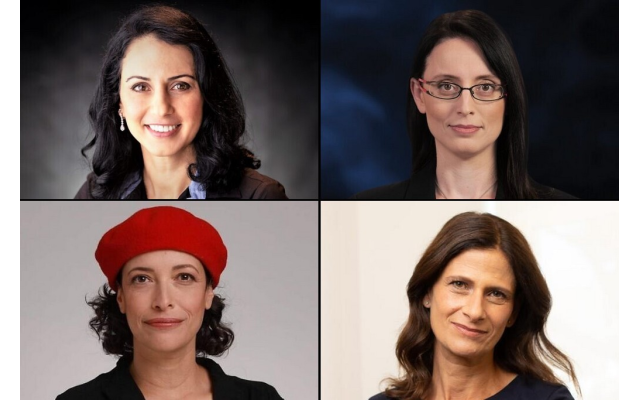
When Hila Shay Vazan, a public relations expert and former journalist, heard on June 15 that the passage of a new law would turn her into a member of Israel’s 23rd Knesset, she was jubilant and slightly shocked.
“The past year and a half has been a roller coaster ride for me,” said the ex-anchorwoman for the now-defunct Channel 10 and Channel 2 television stations.
Following the merger of Israel Resilience with Moshe Ya’alon’s Telem Party and Yair Lapid’s Yesh Atid – resulting in the Blue and White alliance — Vazan placed 39th on the joint slate and was left outside parliament in the three elections that followed. She planned to continue supporting Gantz’s party and develop her own social and political initiatives outside the Knesset, but last week everything changed when the Knesset voted in favor of the so-called Norwegian Law.
The legislation allows cabinet ministers to resign as Knesset members and have their seats taken by new lawmakers. It was of special importance to Gantz’s Blue and White after the ex-IDF chief of staff agreed to enter a unity government with Prime Minister Benjamin Netanyahu, a move that caused his political alliance to break up (though he retained its name).
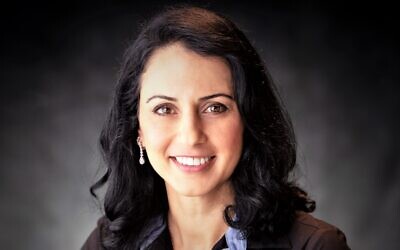
“Since it wasn’t clear what form the law would take. There were moments when I genuinely thought it wasn’t going to happen,” Shay Vazan told The Times of Israel.
“Even on the day the law passed, it was initially removed from the Knesset’s voting agenda for the day. I really told myself: ‘Okay, it’s over.’ Then Gantz entered Netanyahu’s office and together they decided to make the vote happen. It was very moving and tense,” she recollected.
The new legislator is joined by nine other incoming MKs: Yorai Lahav-Hertzano (Yesh Atid-Telem), Einav Kabla (Blue and White), Tehila Friedman (Blue and White), Michal Cotler-Wunsh (Blue and White), Yitzhak Pindros (United Torah Judaism), Ariel Kellner (Likud), Osnat Mark (Likud), Uriel Buso (Shas), and Yossi Taieb (Shas).
Another member of the ultra-Orthodox Shas party, Rabbi Baruch Gazahay, had been set to join the Knesset thanks to the Norwegian Law. He withdrew his nomination after it was revealed that he had made controversial statements in the past — for example, that women who wear shirts that flaunt their cleavage get breast cancer.
While Shay Vazan rejoiced that “it’s amazing” that four female lawmakers entered Blue and White’s Knesset faction, others in the Knesset and beyond have strongly criticized the Norwegian Law.
One reason for the ire is financial: According to the Knesset’s information and research center, each new lawmaker could cost the state an approximate NIS 1.7 million ($500,000) per year. The sum is made of the MKs’ salaries, the salaries of their parliamentary aides, the budgets allocated to their respective offices and the subsidized vehicles they are to receive from the Knesset.
The High Court of Justice strongly criticized a previous version of it, which was eventually scrapped. That draft of the bill permitted Blue and White lawmakers who became ministers to resign from the Knesset and bring in other members of their faction, skipping over members of the Yesh Atid-Telem faction, which had splintered off the alliance and entered the opposition rather than join Gantz in coalition with Netanyahu.
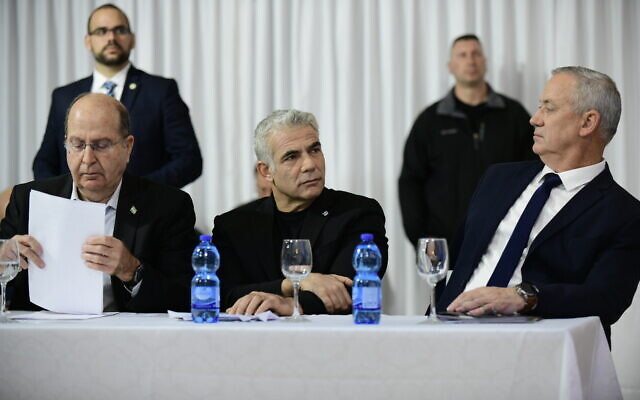
Cotler-Wunsh and Friedman had previously been aligned with Telem and Yesh Atid respectively, but did not join them in opposition.
The Times of Israel spoke to the four new female legislators of Blue and White to learn what their political agenda is, where they stand on major issues and what they hope to achieve during their tenure.
The 49-year-old lawyer, an expert on international law, was raised in Canada and spent her formative years there, daughter of retired Canadian politician Irwin Cotler, who served as Canada’s attorney general and justice minister. Cotler-Wunsh served as a board member at Tzav Pius, an organization founded following the assassination of Yitzhak Rabin that seeks to bridge the gaps between religious and secular Jews. She also acted as a research fellow at the International Institute for Counter-Terrorism at the Interdisciplinary Center, Herzliya.
Today she resides in Ra’anana with her husband and four children.
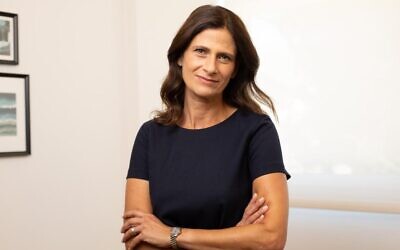
Following her entry to the Knesset, she has been appointed to head the parliamentary committee battling the repercussions of drug and alcohol abuse.
Cotler-Wunsh said that she felt “a lot of pride but also an immense sense of responsibility” when she heard that she was to become an MK.
“While the coronavirus is plaguing Israel, 85 percent of Israelis have reportedly expressed recently that they feel anxious about the future. At a time like this, the public is looking to the government and the Knesset to offer solutions,” she noted.
Addressing the split of Blue and White after Gantz decided to enter into a coalition agreement with Netanyahu, Cotler-Wunsh said emphatically that “the election results didn’t leave a choice but to enter a unity government. As far as I’m concerned, it was our responsibility to do so, and it’s Yesh Atid and Telem that opted out.
“I vocally supported joining a unity government after the second election, and continued to support it after the third election. I did what I could behind the scenes to affect the process.”
Having spent a large chunk of her life abroad, Cotler-Wunsh said that for her, the problematic light in which Israel is sometimes seen internationally is an issue she hopes to tackle during her tenure.
“There is something that affects Israel’s standing in the international arena, and that is the fact that we don’t use the right language,” she reflected. “The language of rights, the lingua franca of international law, is the language countries use to communicate. But Israel uses the language of security. It’s true that we have authentic security challenges, but we must learn to express them through the language of rights. I hope to bring that to the fore, because that’s my area of expertise.”
Asked where she stood on Israel’s right, or lack thereof, to officially annex parts of the West Bank, a process whose target date had originally been slated for a mere week after she joined the Knesset, Cotler-Wunsh appeared to be toeing the party line.
“If any government in Israel would be able to lead this process, it would be a unity government and not a fractured, minority government. I believe that Trump’s Peace and Prosperity Plan offers a paradigm shift. It’s the first time that both parties are being viewed as equal. Herein lies the plan’s potential: It acknowledges the Palestinians’ ability to take responsibility for their future, and inherent to that responsibility is reciprocity — acknowledging Israel’s right to exist.”
Einav Kabla
The 41-year-old Kabla, an attorney by trade, joined the Knesset after Tourism Minister Assaf Zamir resigned from it following the passage of the Norwegian Law.
She is an expert on administrative law and labor issues, and previously directed the staff of ex-Histadrut labor federation chief Avi Nissenkorn, who now acts as justice minister. She lives in Tel Aviv with her husband and two children.
Kabla was recently appointed the chair of the Knesset’s Science and Technology Committee.
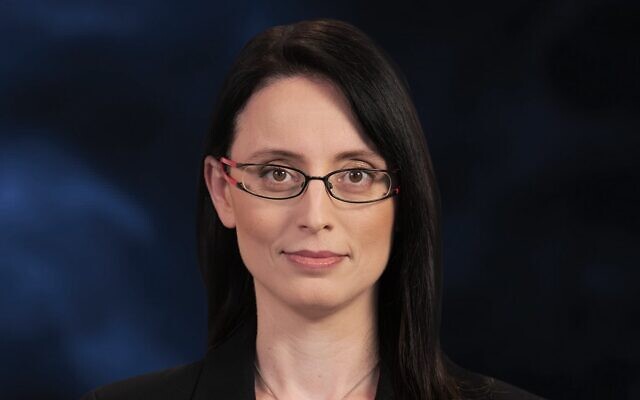
“I was offered to serve as director-general of the Justice Ministry” right before the Norwegian Law passed, Kabla told the Times of Israel. “But I decided to forgo that in order to become a Knesset member, because I felt that it is a very big privilege to be a public servant. I truly hope to have a chance at making a change and working for Israeli society.”
Asked whether she might eye the justice portfolio in the future, Kabla responded that she is “focusing on my current role for now, but I can say that as a lawyer I am definitely drawn to this field.”
During her time in the Knesset, Kabla said she wished to assist endangered populations and protect Israeli consumers. “I just submitted a bill to help people with disabilities,” she said.
“This bill attempts to amend a law that calls for equal rights for people with disabilities. Today, both private and public sectors are committed to hiring people with disabilities, but the law doesn’t fully address how it should be done in the private sector. I think this is an important issue and is rendered even more relevant during the coronavirus crisis, when a lot of people have been sent home on unpaid leave, and among them are many people with disabilities.”
Tehila Friedman
The 44-year-old Friedman is a lawyer who considers herself a religious feminist activist. She founded various organizations and initiatives aimed at creating unity among the population in Jerusalem, where she lives, and Israeli society at large. Friedman was also a researcher at the Shalom Hartman Institute, a Jewish research and education institute in the capital. She is married and the mother of five children.
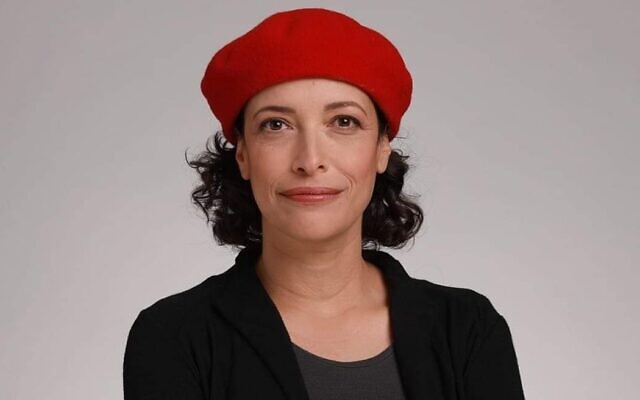
Friedman explained to The Times of Israel that she left Lapid’s Yesh Atid “in March, when the rift between Yesh Atid and Israel Resilience began, because I thought it was the right step to take seeing as I supported heading into a unity government.”
While she is “definitely glad” to have joined the Knesset, Friedman is well aware of the criticism aimed at the Norwegian Law. However, she believes that it is unjustified.
“The Israeli parliament is one of the smallest in the world compared to the size of the country’s population. The Knesset, compared to the government, is very weak,” she said. “We don’t have enough MKs who are busy being just legislators who work for the public. It would be ideal if all the ministers resigned and Israel had 120 full-time legislators.
“You know when the expenses are redundant? When they’re allocated to a government that has too many ministers,” Friedman charged (the unity government has been heavily criticized for its record 35 ministers).
During the Second Intifada, Friedman acted as adviser to Natan Sharansky, a former Jewish Agency chief who served at the time as minister of Diaspora affairs. That experience informs her ambition to try and improve Israel’s relationship with Diaspora Jews from within the Knesset.
“One of the things that I would like to promote is for the Israeli government to have the legal obligation to seek the consultation of Diaspora Jewry when it makes decisions that could affect the lives of Jews abroad.”
Hila Shay Vazan
The 40-year-old Vazan is an experienced journalist. At Channel 10 she was a researcher, reporter and anchorwoman on a late-night news show; at Channel 2 she anchored a news-driven morning show, “Ha’olam Haboker.” Four years ago she founded a social movement called Shavim Shonim (in Hebrew: “Equal and Different”), which attempted to increase equality between men and women in the public and private sectors through protests, online content and gatherings. She lives in Modiin and is the mother of four children.
The feminist agenda is one she will highlight in her parliamentary work, Shay Vazan vowed.
“I think that the fact that four women just entered the Knesset is a testament to something important: When women are professional and empowered, they achieve things. No one was trying to make this happen behind the scenes. We just happened to be four capable women,” she said of the shakeup.
Her opinions regarding the feminist fight for equality have already sparked controversy, when an interview published by Hebrew daily Yedioth Ahronoth over the weekend quoted her as saying that “women aren’t victims” and that the #MeToo campaign that has gained momentum over the past few years “went a step too far,” accusing “radical feminists” of making women look bad because “they complain.” Her statements provoked a lot of pushback, with many activists on behalf of the #MeToo movement slamming her for failing to stand up for women despite her declared agenda.
Shay Vazan tells the Times of Israel that she stands behind her statements, but that they were misinterpreted. “Like I said, I think that #MeToo is an important movement that raised the issue of sexual harassment, which need to be abolished, in the public consciousness. I just believe that the movement erred when it turned into a women-only battle. When I said that the movement went too far, I meant that it portrays all women as victims and all men as potential attackers. I would like to live in a world where I can raise my daughter to understand that sexual assault is a horrible phenomenon that needs to be treated as such, but that there are good men out there.”
Shay Vazan adds that “despite the personal assaults on me for what I said, I also received a lot of support and I’m glad it sparked a public debate on what feminism means and showed that it has more than one voice or side to it.”
She also wished to highlight work that she is carrying out in the Knesset to fulfill her agenda. “Last week I submitted a bill that seeks to change the Law on National Insurance. This law recognizes only women as homemakers, and not men. You could say that it’s only semantics but it isn’t: A married woman who doesn’t have a job isn’t forced to pay National Insurance fees, whereas a man who is married and doesn’t have a job isn’t provided that exemption. I aim to change that.”
Asked whether her religious background doesn’t clash with the official, centrist positions of Blue and White, Shay Vazan said she doesn’t feel such tensions in the party.
“I think that it’s wonderful that a religious woman like myself, who considers herself to be on the right side of the political spectrum, can find herself in the same party as someone like Miki Haimovich, who is secular and left-wing. At the end of the day, I’m very transparent about my vision for Israel. If I had total freedom to vote as I wished, I would vote in favor of imposing Israeli sovereignty over West Bank settlements.”



comments